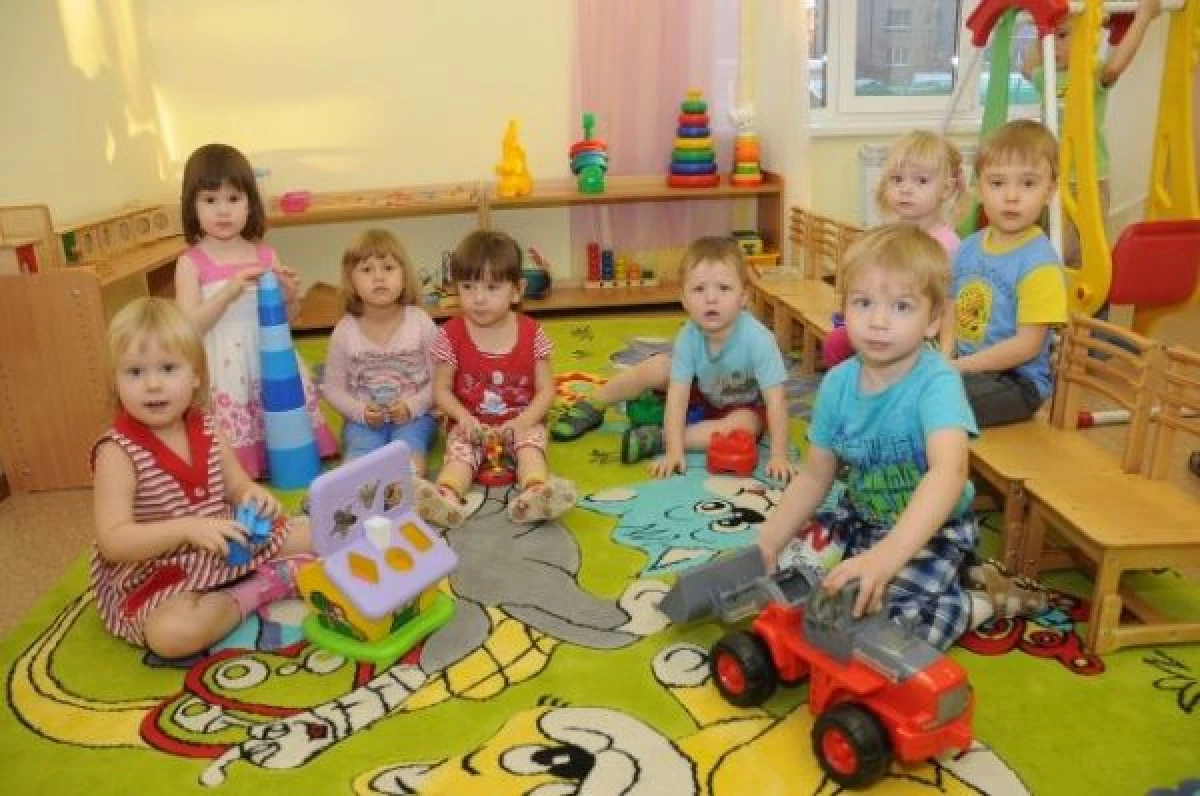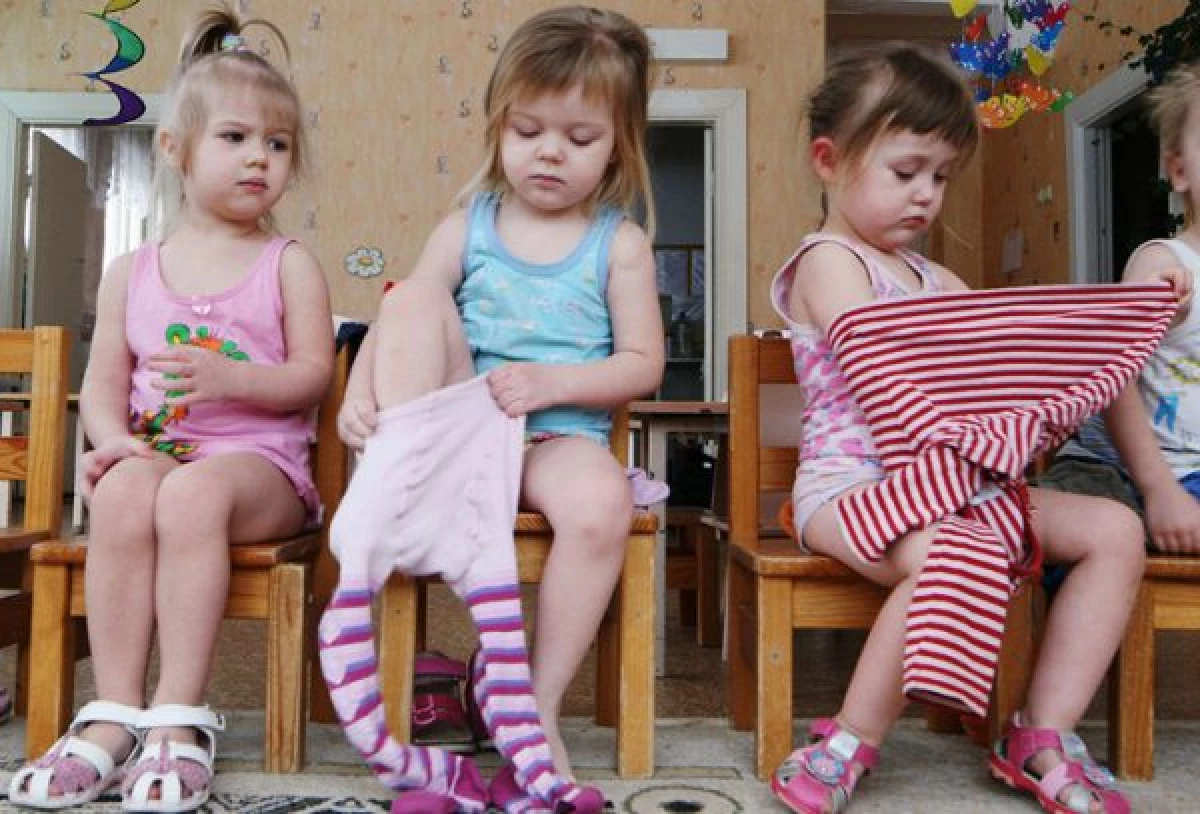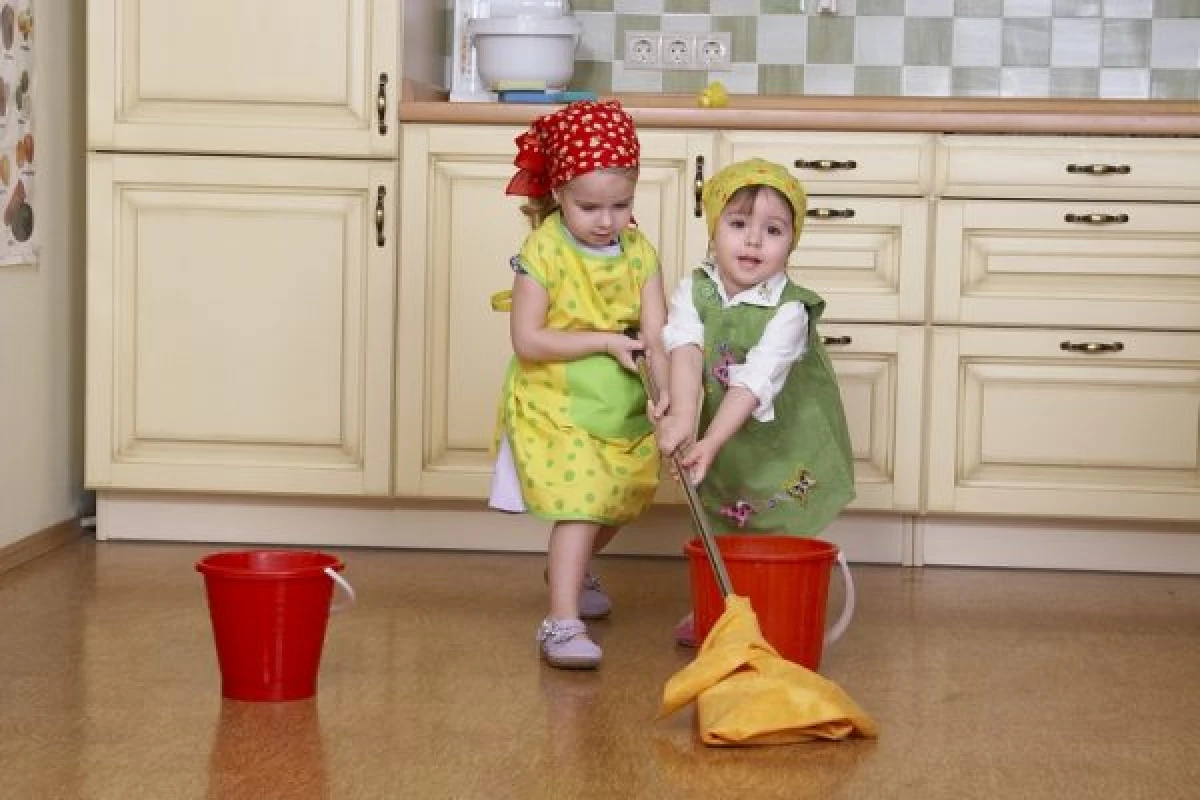Many
They notice that their children are perfectly behaved in kindergarten, and at home are unmanaged. In kindergarten kid can calmly
, remove the toys behind you, to eat yourself and stacked on a daily dream. At home, the child takes attention to himself, the books, dolls and cars are scattered throughout the apartment, and Kroch shouts, does not listen, nothing does it. Teachers say that so preschoolers check the permissible borders. It is important for the child to understand that mom and dad will love him, despite behavior, and this is true. But, at the same time,
Ready to share pedagogical tricks to and at home the baby behaved well.

Develop autonomy in a child
Children 3-4 years old, of course, can not do everything independently, so they need adult help. But they are already able to assemble toys, stretch the pants, wash their hands and eat on their own. Parents should help develop independence from the baby, and not to rush to do everything at once. If Kroch wants to wash the dishes himself, do not let it say, despite the fact that then you have to wash the floors in the kitchen and pump the plates. Give the opportunity to the baby to show independence, praise for the help, and then the little man will never sit and indicate that parents should do for him.Believe in your children
"He still will not work out to unbutton the buttons on a blouse, better I will do it," thinks Mom and does not give the baby to even try to do something alone. Parents do not believe in their children, although in the kindergarten they calmly change clothes, wash the handles with soap, pour water into a cup. If mom or dad do not believe that the crumbs will succeed, he does not want to try. Conversely, if parents raise their expectations, the baby will reach to match it. Only it is necessary to do with praise, explanations, patience. In no case cannot scold the baby, criticize and demand, otherwise nothing will work.

Do not rewar for children
If the child put the toys on the shelf at its discretion, you do not need to rush to rearrange them in the right order. If the kid swallowed his belongings, do not outweigh them as you need. On the contrary, you need to praise the child for independence and not to show that he did something not as I would like. Naturally, the dishes that the baby was washed away, they will have to move, but it is necessary to make it so that the child does not notice. Otherwise, you will select any desire for independence.Let the opportunity to take your own decision
The child collects the designer, and here you rush to help to help you get a castle or house faster. Do not do this. Let Kroch himself decide what his structure will look from the details. Parents want everything to work perfectly, at their discretion. But the child is an independent person, and he has the right to take his own decision.
Let the baby helps in the house
Let's crumble ordinary orders, for example, it will water the flowers, wipe the dust, pour pet food. Only tasks should be real, because the baby is important to feel necessary and useful. Let's crumble the assignment that he can do it, and then he will fulfill them with pleasure.

Encourage cooperation
Many parents are perplexed, as an educator can sit down 20 children at the table, and at the same time they all calmly engage in some kind of affair. To do this, you need to learn how to organize children and develop a sense of cooperation in them. How to do it?- Quickly praise. Children should always praise, but especially those who are not inclined to cooperate need.
- Stick the routine of the day. In kindergarten, it is clearly painted all day, and pupils easier to adapt to the schedule and perform it. At home, of course, you should not strictly adhere to the regime, but there must be certain rules that all family members are strictly performed. For example, in front of breakfast, all the beds are filled and washed, after a walk, arms werehed with soap, the teeth are cleansed before bedtime, and then the parents read the fairy tale. If you adhere to the established rules, after some time the child will perform them without whims and hysterics.
- Use the game. Any kroch orders will be performed with pleasure if you use a game form. For example, the baby categorically refuses to dress in the garden. Offer him to play the stylist and come up with a fashionable image.
- Warn about your actions. Often parents notice that the child suits the hysteria when he is told that it's time to turn off the cartoons and go to sleep. It happens not because the baby has a bad character. Just you did not warn in advance about what is going to do, and the crocha was not ready. In kindergarten, teachers are warned in a few minutes that you need to stop the game and go to day sleep. At home, too, you need to say for 5-10 minutes: "You still have time to finish the game, and then we will fit to sleep." You can start the alarm clock for 5 minutes, and when it is sprouting, the time set out.
- Encourage only for any achievements. If every time you buy a toy or sweets for the fact that the child cleans his teeth or collects his things, he will not understand why it really does. Use the reward only when the kid has achieved something, for example, learned to tie the laces.
- Provide a choice. When the crumb refuses to dinner, offer him a choice of several dishes. If a child himself makes a choice, he will sit at the table and eat the chosen dish. For example, the baby does not want to dress. Offer him to choose a few options for clothes, and the dressing process is much accelerated.
- Teach to play yourself. You do not need a day long stay next to the preschooler and entertain it. The child should be able to play independently. Offer a few options: spread plasticine, pencils, album, paints, cars, dolls. Of course, parents also have to participate in the game of the game, but do not need to do it. If the baby begins to miss, because the mother prepares lunch and cannot give him time, he himself will think of entertainment.
- Do not decide all the problems for the child. If conflict arose between your baby and another child there is a conflict between your baby and another child. Give the time to kids to understand the problem independently and find a way out of the conflict.
How to teach to discipline
You do not need to put a baby in an angle or raise your voice if the crumb does not listen. Teachers in kindergartens are able to teach discipline without severe punishments. How do they do it?
- Distract. The child scatches the toys, watering the cat from the watering can or jumps on the bed? Offer him to play hide and seek, dance or go outside. If you switch the attention of fidgets to a more interesting occupation, he gladly leave his leprosy and will take something to others.
- Get the opportunity to correct errors. Croha painted his table with a marker? Instead of screaming, give him a sponge in his hands, and let the kid erases his drawings. If, on the playground, the son or daughter destroyed the sand tower, which other children were built, offer their child to build it again.
- Punch at the moment of misdeed. If you decide to punish a child, do it immediately as soon as he did something. You do not need to postpone a strict conversation for an indefinite time, because the kids quickly forget about the incidents and may not understand what they scold them. For example, Kroch himself behaved on Wednesday, and you cancel the campaign in the cafe at the weekend. The baby will not make conclusions and only hurt you.
